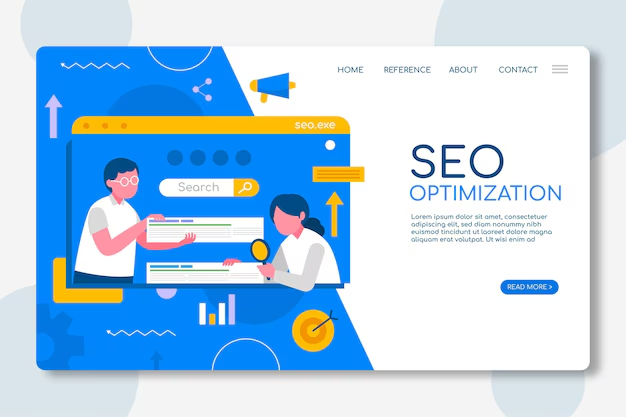Blogging has evolved significantly over the years, with numerous platforms available for professional bloggers to showcase their skills and reach a broader audience. Choosing the right blogging platform is crucial for long-term success, whether you’re a beginner or an experienced blogger. In this article, we’ll explore the best blogging platforms for professional bloggers in 2024, weighing their features, pros, and cons to help you make an informed decision.
1. WordPress.org
Ideal for: Professional bloggers, businesses, and those who want complete control over their blog.
WordPress.org remains the top choice for professional bloggers in 2024. It is a self-hosted platform, which means you’ll need to purchase your domain name and hosting. This might sound like a downside, but it offers unmatched flexibility and customization options, making it perfect for those who want full control over their blog’s design and functionality.
- Pros: Highly customizable, thousands of themes and plugins, excellent SEO capabilities, full control over your content.
- Cons: Requires some technical knowledge, ongoing maintenance, and a hosting fee.
If you want a platform that grows with you and allows you to create a fully customized blog, WordPress.org is the way to go.
2. WordPress.com
Ideal for: New bloggers, hobbyists, and those looking for an easy setup.
WordPress.com is a hosted version of WordPress.org and provides a more user-friendly experience, as everything is managed for you, including hosting. It’s a great option if you don’t want to deal with the technical side of running a blog. While it offers less flexibility compared to WordPress.org, it’s perfect for those who want to start blogging quickly without dealing with the complexities of a self-hosted setup.
- Pros: Easy setup, no need to worry about hosting, built-in security and backups.
- Cons: Limited customization options, ads on the free plan, less control over your content.
With WordPress.com, you can start blogging within minutes, making it a popular choice for new bloggers.
3. Medium
Ideal for: Writers and bloggers who want to focus solely on content without worrying about design and customization.
Medium is a platform known for its clean and minimalistic interface. It’s perfect for bloggers who want to focus on writing rather than managing a website. Medium allows you to reach a built-in audience, and your posts have the potential to go viral through its social networking aspect. However, the downside is that you don’t own your content entirely, and customization options are limited.
- Pros: Easy to use, built-in audience, no setup required.
- Cons: Limited customization, you don’t have full ownership of your audience, no control over ads or monetization.
Medium is great for those who want to publish high-quality content without the hassle of managing a website.
4. Wix
Ideal for: Bloggers who want a visual drag-and-drop editor and a customizable design.
Wix is a versatile website builder that also offers robust blogging features. With its drag-and-drop interface, creating a blog is easy, even for beginners. Wix provides a variety of themes and templates to choose from, allowing you to customize your blog’s design without any coding. However, it is not as flexible as WordPress.org when it comes to scaling and adding advanced features.
- Pros: Easy drag-and-drop editor, no coding required, customizable templates.
- Cons: Limited SEO tools compared to WordPress, more expensive for advanced features.
Wix is ideal for bloggers who want a visually appealing website without learning how to code.
5. Squarespace
Ideal for: Creatives, designers, and bloggers who prioritize aesthetics.
Squarespace is known for its beautiful templates and design options, making it a favorite among creative professionals. It offers a range of tools for blogging, including built-in SEO features, analytics, and e-commerce functionality. Squarespace is a hosted platform, so you won’t need to worry about hosting or updates.
- Pros: Stunning design templates, easy to use, all-in-one platform with hosting included.
- Cons: Less flexible than WordPress, limited third-party integrations, higher monthly costs.
Squarespace is an excellent choice if you want a visually striking blog with minimal effort.
6. Ghost
Ideal for: Bloggers who want a simple, fast, and secure platform focused on publishing.
Ghost is an open-source platform designed specifically for blogging and publishing. It’s a great alternative to WordPress if you want a simpler, more streamlined experience. Ghost offers both self-hosted and managed options, providing flexibility for different user needs. It’s known for its speed and clean writing interface, making it a favorite among writers and publishers.
- Pros: Fast, simple interface, SEO-friendly, great for content-focused sites.
- Cons: Less customizable than WordPress, requires technical knowledge for self-hosting.
Ghost is perfect for bloggers who want a no-frills platform that prioritizes speed and simplicity.
7. Blogger
Ideal for: Beginners and hobby bloggers looking for a free platform.
Blogger, owned by Google, is one of the oldest blogging platforms still in use today. It’s completely free to use and allows you to get started with a blog in minutes. However, it lacks the advanced features and customization options that more modern platforms offer, making it less suitable for those looking to scale their blog.
- Pros: Free to use, easy setup, integrates with Google services like AdSense and Analytics.
- Cons: Limited design options, not ideal for professional bloggers, lacks updates and support.
Blogger is a good option for those who want a free and simple way to start blogging without any expenses.
Conclusion: Choose the Right Platform for Your Blogging Goals
The best blogging platform for you depends on your goals, technical skills, and budget. If you’re looking for complete control and flexibility, WordPress.org is the top choice. For those who want a hassle-free setup, WordPress.com and Medium are excellent options. If you prioritize design, Squarespace and Wix might be the best fit. Finally, Ghost offers a streamlined experience for content-focused bloggers.
Take your time to explore these platforms and choose the one that aligns with your needs. With the right blogging platform, you can build a successful blog that reaches your target audience and grows over time. Happy blogging in 2024!






